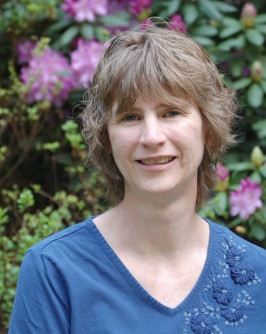What writer doesn’t dream of attending a writers’ retreat in some charming or exotic location? Retreats can be wonderful opportunities for encouragement, learning, and networking, along with glorious stretches of uninterrupted writing time. But retreats can also be expensive, intimidating, and inconveniently far from home.
Wouldn’t it be nice to find an inexpensive writer’s retreat near your home?
Enter the DIY writers’ retreat.
A writer’s retreat doesn’t have to be a big affair with nationally known speakers. The key ingredients are simple: encouragement, fellowship, challenge, and (most important of all) time to write without the normal daily distractions.
So one day I decided to host my own one-day retreat where the attendees would take turns leading various sessions. The writers I invited might not be qualified to teach at a major conference, but they were perfectly able to share a favorite technique or lead a creative excise.
That first retreat was a great success. Those who attended left my house encouraged, reinvigorated, and eager to come back for the next one. I have since hosted five more.
Here are my suggestions for designing and running your own DIY writers’ retreat.
1. Keep it small
Hosting a retreat in someone’s home keeps things cozy and simplifies logistics, but it limits the number of attendees. Between six and ten is a good size, unless you have a house large enough to handle more. You need enough attendees to generate good discussion, but not so many that you feel crowded. Ideally, the group should be small enough so you can all eat lunch at the same table. The conversations over lunch can be as important as any other part of the day.
2. Keep it simple
My first retreat was over-planned. I worried about unnecessary details, bought too much food, and packed the schedule too tightly. I have since found that retreats work best with a flexible schedule and plenty of time for solo work. Plan a few key sessions, but leave the rest of the day open. Who knows when an impromptu brainstorming session or walk in the park might be exactly what someone needs.
Keep the food simple, too. Order pizza, do a pot luck, or ask everyone to bring their own. Whatever is easiest for you and your group.
3. Divvy up the tasks
A DIY retreat is a group project. By spreading tasks among the attendees, the whole thing comes together without any one person feeling overwhelmed. Part of the vision for a DIY retreat is that the attendees are also the teachers. One person shares a devotional. Another leads a creative writing exercise, A third teaches a simple-but-useful writing technique.
You can pool your resources for the meal and snacks as well, so the hostess doesn’t need to provide everything.
4. Identify your primary needs
In my first retreat we tried a little of everything. In subsequent retreats we skipped critique time (we all have critique partners) and opted for more free writing time, since most of us have children or other distractions at home.
What does your group want most? Free writing time? A chance to brainstorm story problems? Two hours of creative writing prompts? Poll your potential attendees and design a schedule that meets their needs.
5. Mix it up
A writer’s retreat is an opportunity to meet with people outside your regular critique partners. Invite writers you don’t normally hang out with and be intentional about cross-pollination. A broad selection of personalities and genres makes for more interesting discussion and fresher insights. You never know when a YA sci-fi novelist might spark an idea that takes your historical romance to a new level.
A writer’s retreat doesn’t have to be complicated. All it requires is a quiet place where you and fellow writers can share knowledge, challenge each other, and provide support through encouragement and practical problem-solving. Why don’t you give it a try?

Lisa E. Betz believes that everyone has a story to tell the world. She loves to encourage fellow writers to be intentional about their craft and courageous in sharing their words with others. Lisa shares her words through dramas, Bible studies, historical mysteries, and her blog about intentional living. You can find her on Facebook LisaEBetzWriter and Twitter @LisaEBetz




No Comments